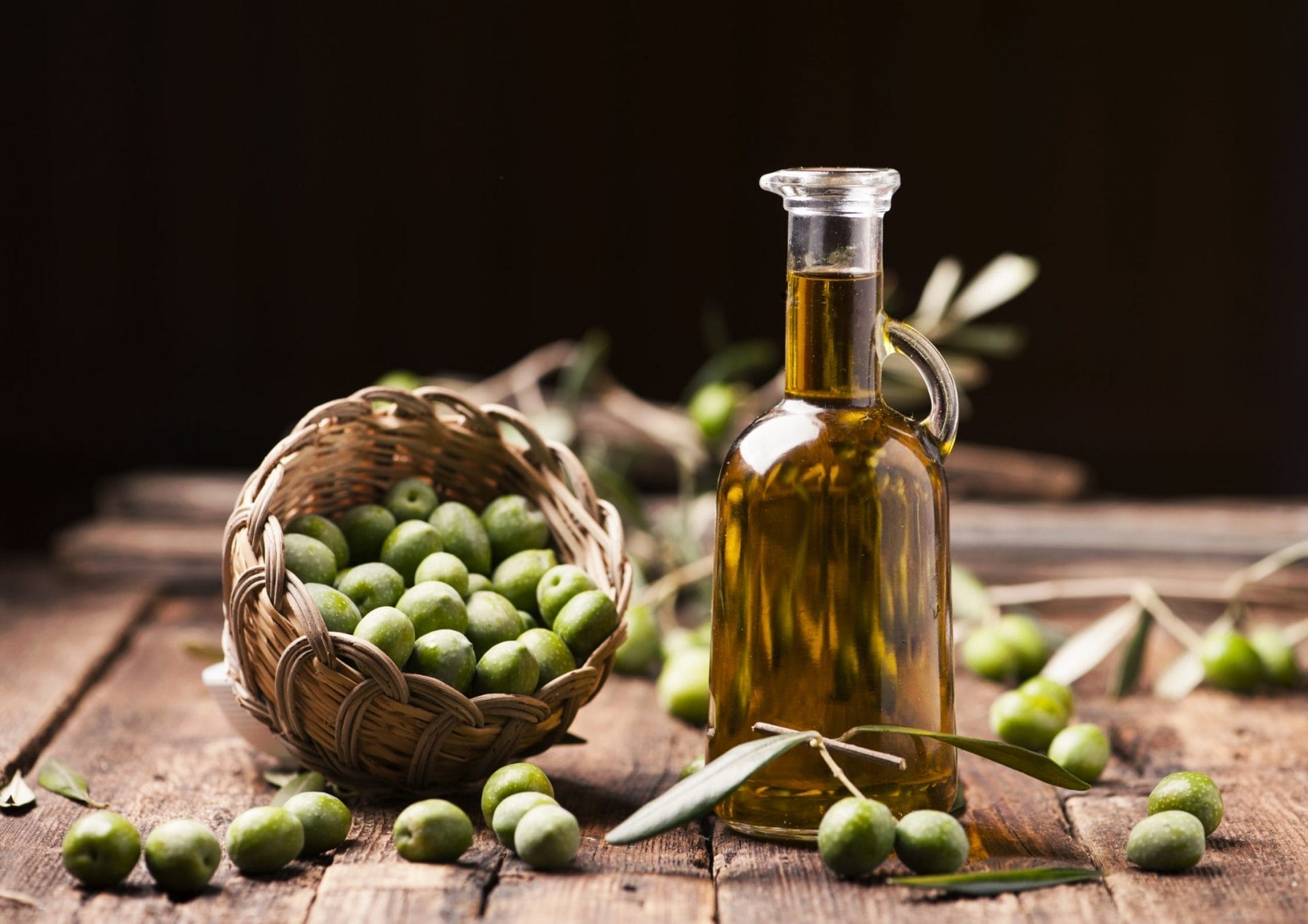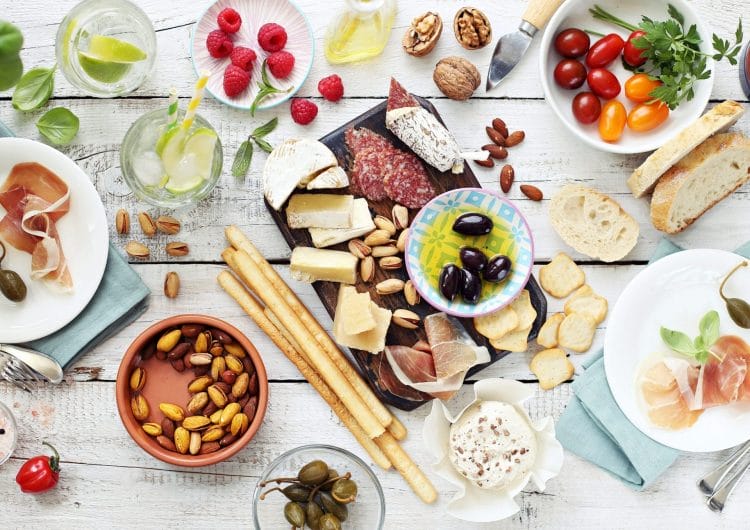While there is a growing body of research investigating potential drugs to help treat or cure Alzheimer’s disease and other dementias, there are currently only a few medications that have been approved in North America and, according to the National Institute of Aging in the U.S., these drugs do not stop or reverse the underlying disease process. The question that arises, then, is what can we do now to keep our brains healthy?
Some of the most promising outcomes to date have been observed with extra-virgin olive oil (EVOO), one of the primary  ingredients of the Mediterranean diet. Over the years, research has shown that individuals living in the Mediterranean have “a much lower incidence of dementia, mild cognitive impairment, and Alzheimer’s,” says Dr. Domenico Praticò, a professor at the Lewis Katz School of Medicine at Temple University in Philadelphia. The Mediterranean diet includes large amounts of fruits, vegetables, olive oil, beans, and grains, moderate amounts of fish, dairy, and wine, and limited red meat and poultry. Now, researchers have identified EVOO as the component largely responsible for the many health benefits linked to the Mediterranean diet.
ingredients of the Mediterranean diet. Over the years, research has shown that individuals living in the Mediterranean have “a much lower incidence of dementia, mild cognitive impairment, and Alzheimer’s,” says Dr. Domenico Praticò, a professor at the Lewis Katz School of Medicine at Temple University in Philadelphia. The Mediterranean diet includes large amounts of fruits, vegetables, olive oil, beans, and grains, moderate amounts of fish, dairy, and wine, and limited red meat and poultry. Now, researchers have identified EVOO as the component largely responsible for the many health benefits linked to the Mediterranean diet.
In a study published in the June 2017 issue of Annals of Clinical and Translational Neurology, Dr. Praticò and his colleagues found that
THE CONSUMPTION OF EVOO PROTECTS MEMORY AND LEARNING ABILITY, AS WELL AS REDUCES THE FORMATION OF AMYLOID-BETA PLAQUES AND NEUROFIBRILLARY TANGLES IN THE BRAIN (WHICH ARE BOTH CONSIDERED CLASSIC MARKERS OF ALZHEIMER’S DISEASE).
 In order to investigate the relationship between EVOO and dementia, the researchers used a well-verified Alzheimer’s disease mouse model and divided the animals into two groups: one that received a chow diet enriched with EVOO and one that received the regular chow diet without it. The mice that consumed EVOO performed significantly better on tests that were designed to eval- uate memory and learning abilities. Remarkably, these mice were “basically performing as if they never developed the disease,” notes Dr. Praticò.
In order to investigate the relationship between EVOO and dementia, the researchers used a well-verified Alzheimer’s disease mouse model and divided the animals into two groups: one that received a chow diet enriched with EVOO and one that received the regular chow diet without it. The mice that consumed EVOO performed significantly better on tests that were designed to eval- uate memory and learning abilities. Remarkably, these mice were “basically performing as if they never developed the disease,” notes Dr. Praticò.
The researchers then examined the brain tissue from both groups of mice and found that the brain cells in the EVOO group were visibly healthier, with stronger connectivity between neurons – which is important for memory formation and recol- lection. Additionally, compared to the mice on a regular diet, the animals in the EVOO group experienced a reduction in levels of amyloid plaques and phosphorylated tau (the toxic products that accumulate in the brains of Alzheimer’s patients). Ultimately, the researchers concluded that EVOO is able to “acti- vate the autophagus system,” the process by which nerve cells are able to “digest, degrade, and eliminate” before they accumu- late in the brain.
In a press statement, the researchers called their findings “a very important discovery” since a reduction in autophagy seems to mark the beginning of Alzheimer’s disease. Moreover, as a natural acti- vator of autophagy, EVOO “could be a new therapeutic approach without all the risk of side effects,” says Dr. Praticò. Of course, what works for mice may or may not work as well for humans, and therefore more research is needed. In the meantime, though, taking a tablespoon of EVOO in its raw form or even cooking with EVOO (although less effective) would be “good for you, no matter what,” notes Dr. Praticò. So, to bolster your brain health, consider adding extra-virgin olive oil to your diet.
Original Article from Mind Over Magazine Vol. 5, Page 59




